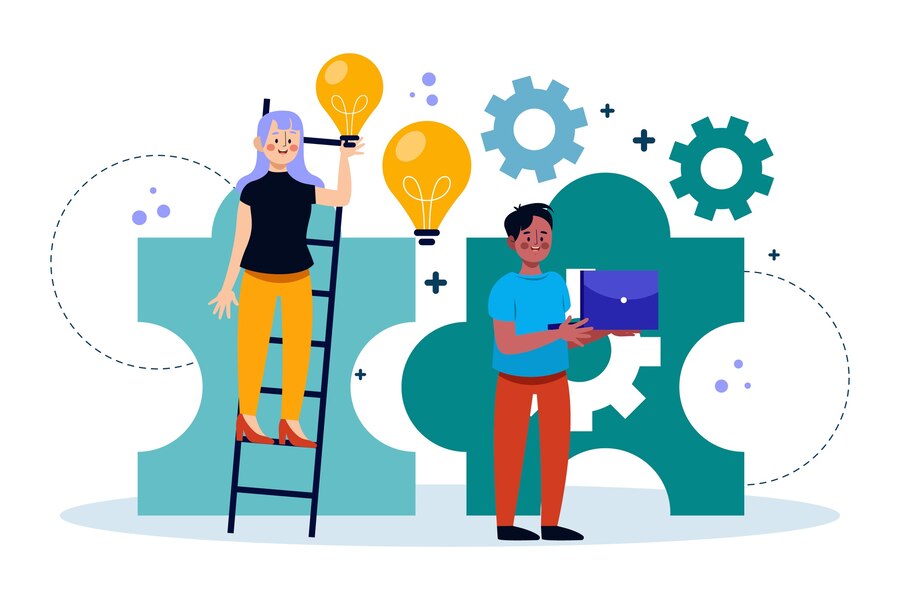In the rapidly evolving landscape of the modern workplace, continuous learning has become a cornerstone for professional growth and adaptability. Embracing a mindset of lifelong learning not only enhances individual skill sets but also contributes to organizational success. This guide explores effective strategies for skill development in the workplace, empowering individuals to stay relevant, agile, and competitive in their careers.
Understanding the Importance of Continuous Learning
Continuous learning is an ongoing process of acquiring, updating, and expanding knowledge and skills throughout one’s career. In today’s dynamic work environment, staying current is essential for personal and professional advancement.
Embrace a Growth Mindset
Tip: Cultivate a growth mindset that views challenges as opportunities for learning and believes in the ability to develop new skills over time.
Example: “I approach new projects with an open mind, recognizing that each experience provides a chance to learn and grow. This mindset encourages me to seek out challenges and continuously expand my skill set.”
Set Clear Learning Goals
Tip: Define specific learning goals that align with your career objectives. Break down these goals into manageable steps to track progress effectively.
Example: “My goal is to become proficient in data analysis within the next six months. To achieve this, I will complete an online data analytics course, participate in practical projects, and seek feedback from mentors.”
Leverage Online Learning Platforms
Tip: Take advantage of online learning platforms, such as LinkedIn Learning, Coursera, or Udemy, to access a wide range of courses and resources tailored to your professional interests.
Example: “I regularly explore online courses to deepen my understanding of emerging technologies and industry trends. These platforms offer flexibility, allowing me to learn at my own pace.”
Seek Mentorship and Coaching
Tip: Connect with mentors or coaches within your organization or industry. Learning from experienced professionals can provide valuable insights and guidance.
Example: “I’ve established a mentorship relationship with a senior colleague who excels in project management. Their advice has been instrumental in refining my project management skills and navigating complex challenges.”
Engage in Cross-Functional Projects
Tip: Volunteer for cross-functional projects that expose you to different aspects of the business. This hands-on experience fosters holistic skill development.
Example: “Participating in a cross-functional project allowed me to collaborate with colleagues from marketing, finance, and IT. This experience broadened my understanding of the business and enhanced my collaboration skills.”
Real-World Application: Skill Development in Project Management
Let’s explore how these strategies can be applied in a real-world scenario:
Scenario: Advancing Project Management Skills
Challenge: You want to enhance your project management skills to take on more complex and strategic projects within your organization.
Application of Strategies:
- Embrace a Growth Mindset: View project challenges as opportunities to learn and grow.
- Set Clear Learning Goals: Define specific project management skills to develop, such as risk management or stakeholder communication.
- Leverage Online Learning Platforms: Enroll in an online project management course to gain theoretical knowledge.
- Seek Mentorship and Coaching: Engage with a senior project manager as a mentor to receive personalized guidance.
- Engage in Cross-Functional Projects: Volunteer for a cross-departmental project to apply and refine project management skills in diverse contexts.
Frequently Asked Questions (FAQs) about Continuous Learning
1- How do I balance continuous learning with my regular job responsibilities?
Allocate dedicated time for learning, integrate it into your daily routine, and prioritize topics that align with your current projects or future career goals.
2-Are certifications important for continuous learning?
Certifications can validate your skills and knowledge, making them valuable for career advancement. However, practical application and real-world experience remain crucial.
3- How can I encourage a culture of continuous learning in my team?
Lead by example, share your learning experiences, and encourage knowledge-sharing within the team. Recognize and celebrate achievements related to skill development.
Conclusion: Empowering Your Career Through Lifelong Learning
Continuous learning is a powerful tool for career empowerment and adaptability. By embracing a growth mindset, setting clear goals, leveraging online platforms, seeking mentorship, and engaging in diverse projects, individuals can stay ahead in their careers and contribute to the overall success of their organizations. Make continuous learning a cornerstone of your professional journey, and unlock the potential for sustained growth and excellence.




